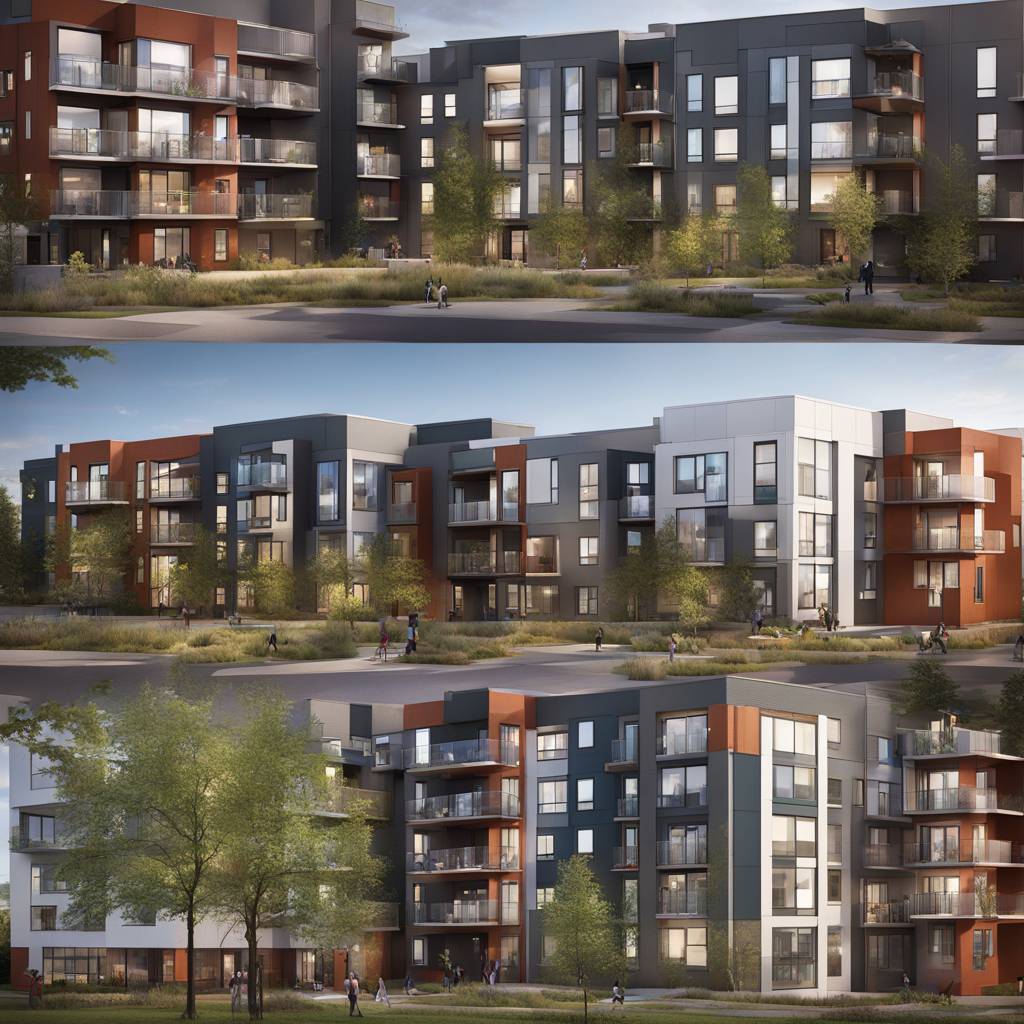The federal government’s plan to combat the affordable housing crisis in Canada is facing scrutiny in Edmonton, where home and rental prices are on the rise. Minister Randy Boissonnault promoted the government’s new $1.5 billion housing fund, aimed at helping non-profit organizations acquire more rental units and keep them affordable. The fund, part of the upcoming federal budget, will provide $1 billion in loans and $470 million in contributions to non-profits and partners to address the housing inequity. The City of Edmonton also announced plans to build a new seniors’ lodge with 36 affordable suites, part of their Affordable Housing Strategy to support another 2700 units by 2026.
Mayor Amarjeet Sohi highlighted the City of Edmonton’s efforts to address the affordable housing crisis, including the Indigenous-led affordable housing grant that funded the seniors’ lodge project. The city has already built nearly 600 supportive housing units with the rapid housing initiative and plans to continue expanding affordable housing options. Prime Minister Justin Trudeau also announced additional funding for an apartment construction loan program and infrastructure support for homebuilding. Despite these efforts, critics like Jim Gurnett of the Edmonton Coalition On Housing and Homelessness remain skeptical of the government’s ability to effectively deliver new housing units and address the housing crisis.
While the federal government’s housing initiatives aim to increase affordable housing options, critics argue that the funding may not be enough to truly make a significant impact. Gurnett believes that the government’s announcements may sound impressive, but after years of underfunding, the initiatives may fall short of addressing the housing crisis effectively. The $1.5 billion housing fund, along with additional infrastructure support and apartment construction loans, are part of a long-term strategy by the Liberals to address housing affordability and win over younger voters. The government’s commitment to addressing housing inequity is evident in their efforts to allocate funding towards non-profits and partners to acquire and maintain affordable rental units.
The City of Edmonton’s Affordable Housing Strategy aligns with the federal government’s initiatives, aiming to create an additional 2700 units of affordable housing by 2026. The Indigenous-led affordable housing grant and the rapid housing initiative have already made a positive impact on creating supportive housing units in the city. As housing prices continue to rise in Edmonton and across Canada, there is a pressing need for affordable housing options to be made available to those in need. The government’s funding allocations towards affordable housing initiatives are a step in the right direction, but critics remain skeptical of the actual impact these initiatives will have in addressing the housing crisis effectively.
Despite the government’s efforts to allocate significant funding towards affordable housing initiatives, critics like Gurnett question the effectiveness of the initiatives in truly addressing the housing crisis. The lack of transparency and accountability in tracking the delivery of new housing units raises concerns about the impact of the government’s housing fund and support programs. While the government’s commitment to addressing housing inequity is commendable, there is a need for greater transparency and oversight to ensure that the allocated funds are being used efficiently and effectively to create affordable housing options for Canadians. The ongoing debate surrounding the government’s housing initiatives highlights the complexities of addressing the affordable housing crisis and the need for a multi-faceted approach to provide sustainable solutions for those in need of affordable housing options.













